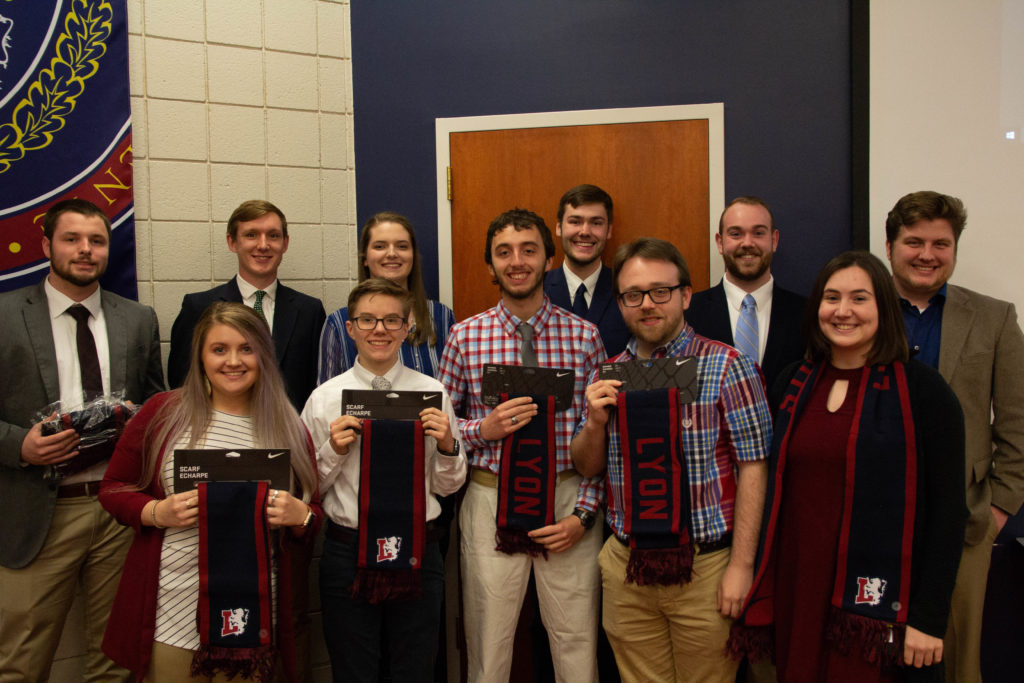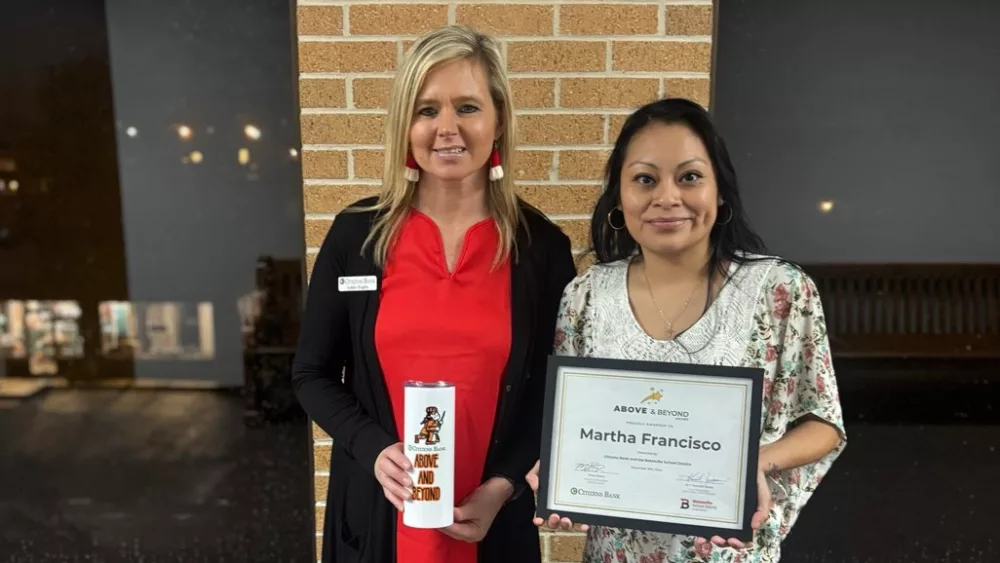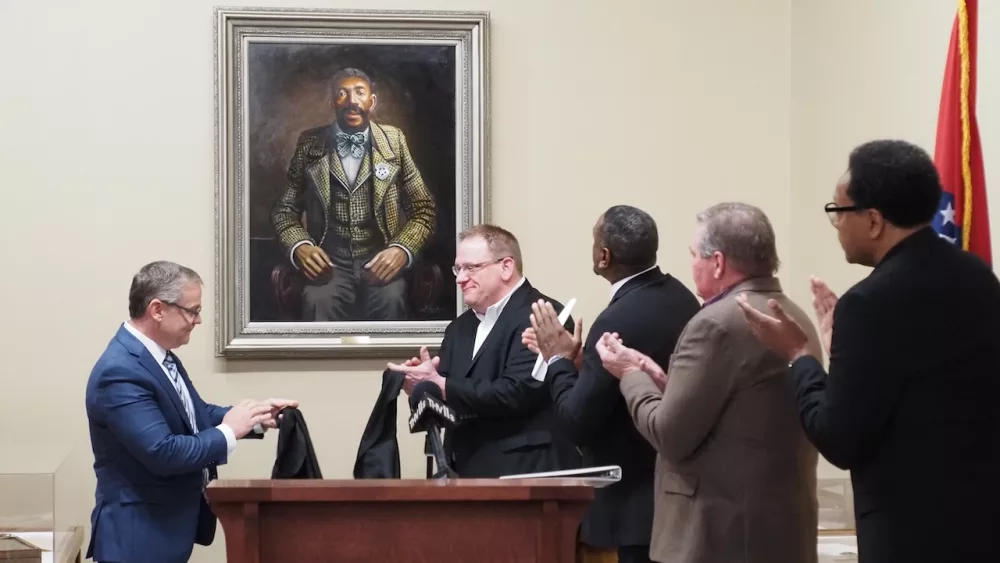Photo (from top left to bottom right): Thomas Maloney, Luke Shackelford, Alice Bewley, Matthew Kirkpatrick, Tanner Harris, William Crawford, Morgun Henson, Emerson Smith, Michael Humphrey, Braeden Hancock, and Nichole Cook pose with their scarves after SCARF.
Lyon College’s Mortar Board chapter hosted the annual Student Creative Arts and Research Forum (SCARF), where students present their creative projects and research for a chance to win cash prizes and much more. All presenters receive Lyon College scarves and the chance to work with a faculty advisor to develop their research and presentation for the forum.
Before awards were announced, Lyon President Joey King delivered a keynote speech explaining why events like SCARF and a liberal arts education go hand-in-hand to benefit students. A liberal arts education teaches students to be creative, and creativity is “what drives human civilization.”
“The reality is, we don’t teach you to [be creative]; we enable you to have experiences where you learn to do it, where you become comfortable to do it,” King said.
“If we value creative work, it has to be reflective in our institutional priorities, and I think more and more so we’re making that. The students who were participating today are the concrete example of what that means and what the outcomes can be.”
Following King, senior Jordan Trant spoke on her experience with research and SCARF.
“Research is more than just forty hours in lab… it’s also learning how to stand up in front of people and talk about the research,” she said. “Research also gives you the amazing ability to travel. I’ve been to a lot of conferences… It’s a great way to broaden your horizons.”
Trant also acknowledged faculty’s role in student research.
“I also wanted to thank the faculty in the room for always involving us undergraduates in your research or encouraging us to do our own projects,” she said. “It really has a meaningful impact on our education to be able to do research and have a close relationship with the faculty member who encourages us to do our best.”
Presenters can participate in poster presentations or oral presentations under the subjects of arts and performance; humanities; and research.
In the poster presentations category, Kendra Bell won first place in arts and performance for her poster: “A Performance of Beckett One-Acts”; Katie Cruse won runner-up in humanities for her poster: “The Relationship Between Aesthetics and Worldviews”; Hannah Smithee won first place for her poster: “The Effects of Racism on Support for Capital Punishment: A Look at U.S. State Demographics”;
Hannah Zang and Luke Shackelford won runner-up in research for their poster: “Mutational Analyses of a Factor Promoting Cytoplasmic Ribosome Maturation in S.cerevisiae”; Jordan Trant won first place in research for her poster: “Development of a Mathematical Model for Computing the Number of Geometrical Isomers of Octahedral Transition Metal Complexes.”
In the oral presentations category, Morgun Henson won first place in arts and performances for her presentation “Public Art: Using Murals to Paint a Community Together”; Matthew Kirkpatrick won first place in humanities for his presentation “Dysfunctional Plenipotentiaries: An Analysis of the Anglo-Irish Negotiations”; Luke Shackelford won first place in research for his presentation “Combating Glioblastoma Resistance to Temozolomide Using Inhibitor of Human DNA Polymerase Kappa.”
“I would like to congratulate all the oral and poster presenters of 2019 SCARF for their outstanding scholarly work as well as the high-quality presentations that we witnessed yesterday evening, and also thank the mentors again for the guidance,” said Dr. Irosha Nawarathne, Mortar Board advisor and assistant professor of chemistry. “The judges had immense difficulty in selecting the winners from each category given the close competition.”











